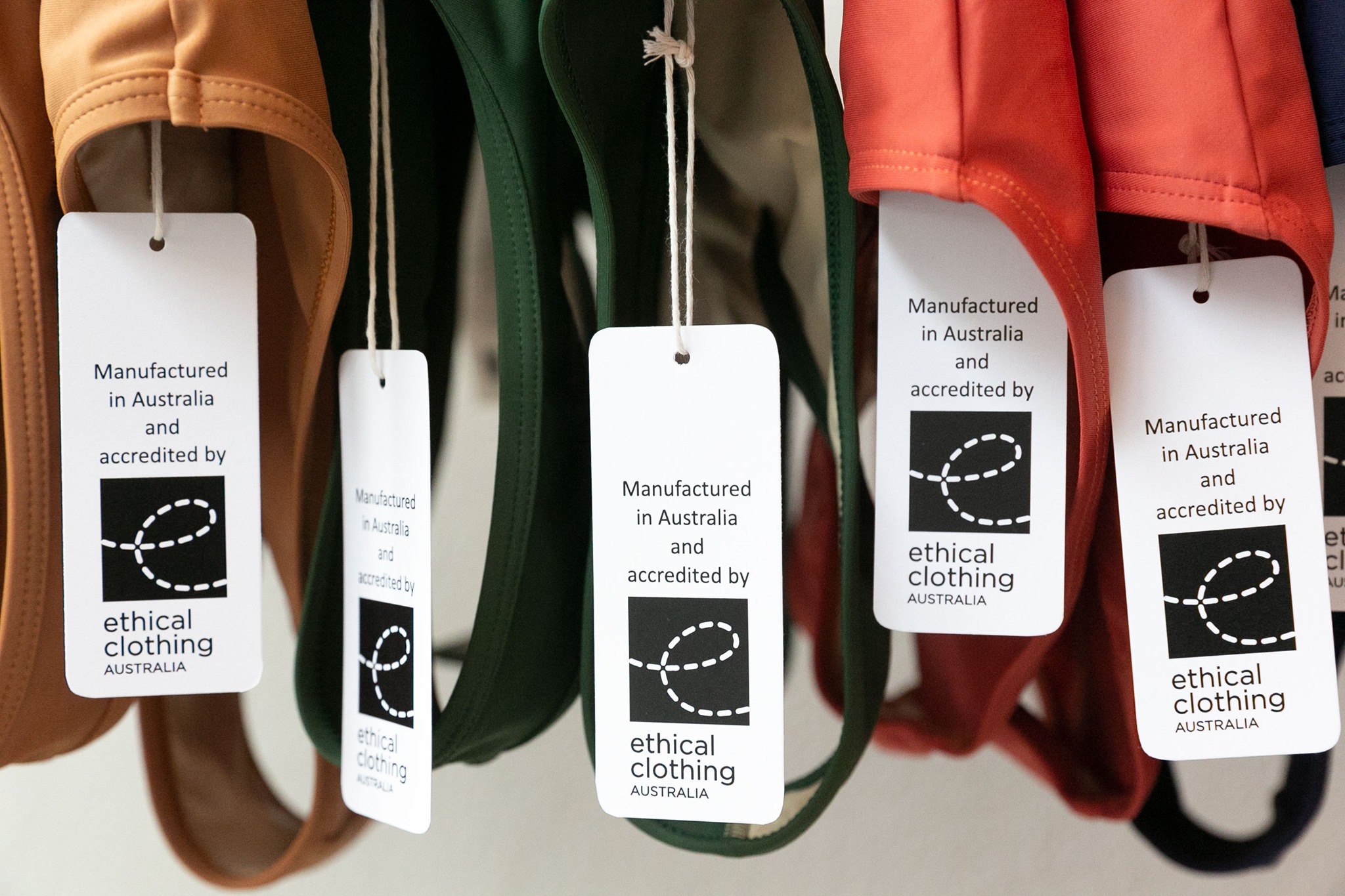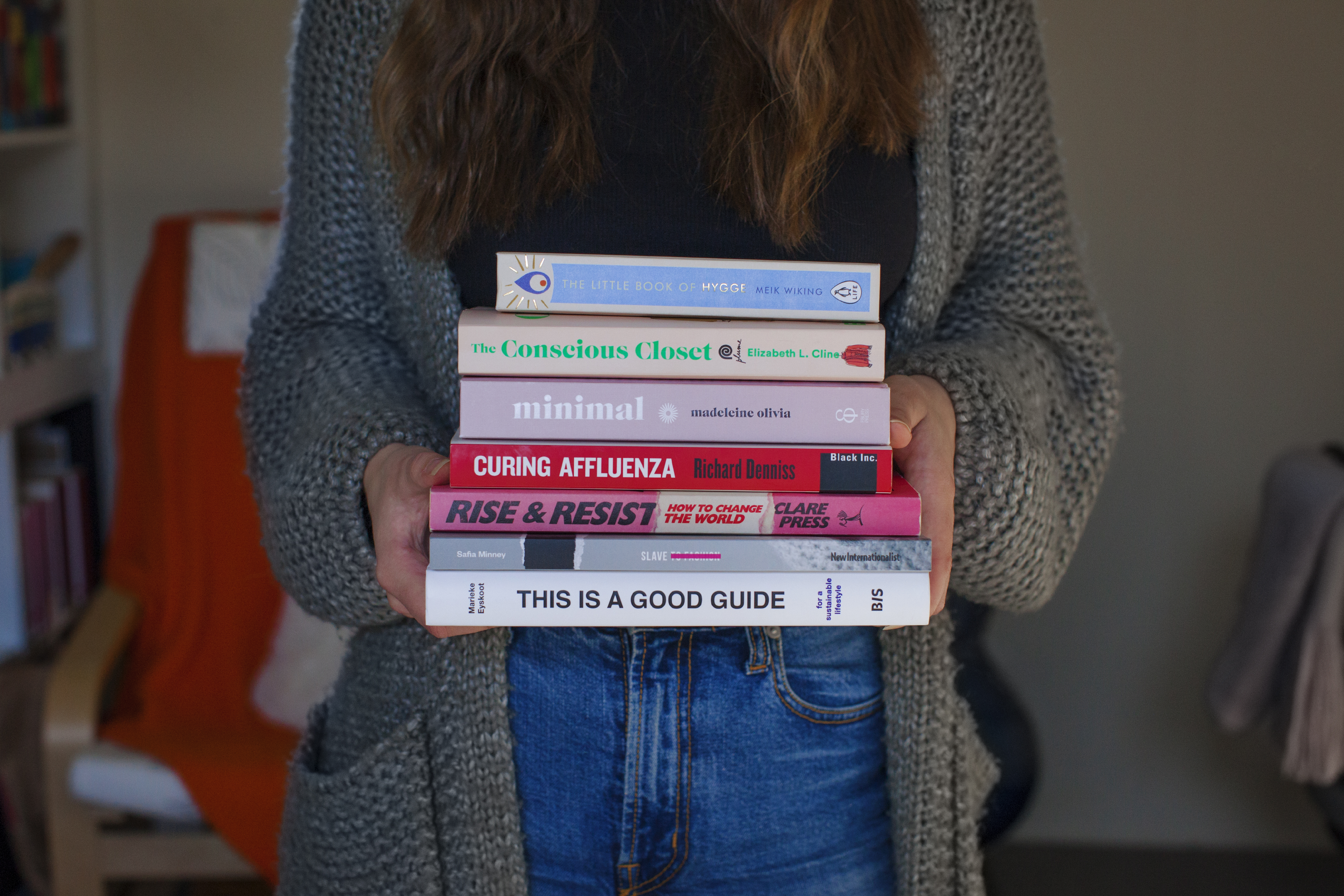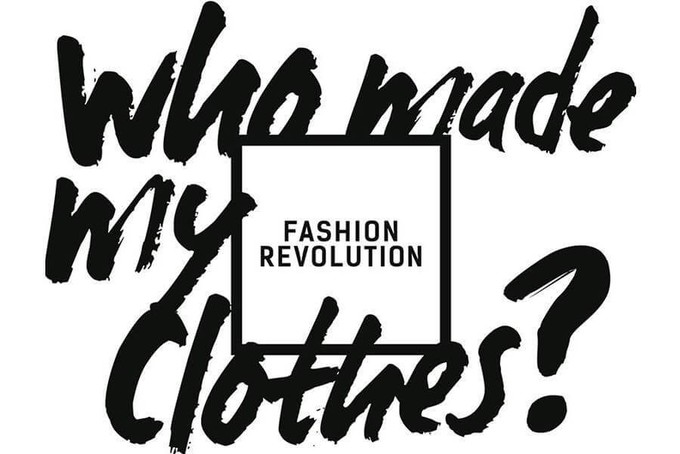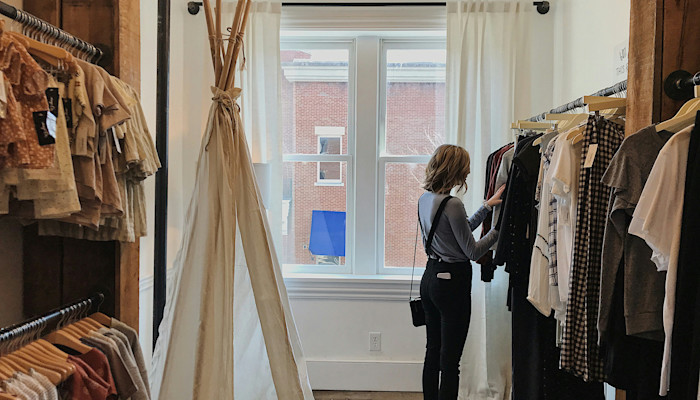How to find sustainable brands
Shopping like a mindful materialist can be difficult if you don't know where to look. Especially if you're new to the sustainable fashion movement — welcome!
So how do you find sustainable brands? The good news is that it's far easier to find them these days than it used to be. Sustainable fashion is more accessible than ever, with plenty of local and international brands gaining traction online and in brick-and-mortar stores, and there are so many online resources now to help you locate them.
When I'm compiling my own brand directory (which is another place you can find brands), I look for certifications and transparency from brands. I'll go into those in more detail below. I also use external resources such as online databases, organisations, reports, books, documentaries and podcasts as well. Basically, the more information a brand shares with the public, the less likely they are to be hiding something.
So let's get into it — these are the things you can look for and the ways you can find sustainable brands.

Image from Ethical Clothing Australia
Certifications
Certifications aren't everything, but they're a concrete piece of evidence that a brand has done something worthy of being recognised by an external body. Certifications can be awarded for sustainable practices, working conditions, organic textiles and fair treatment of animals to name a few. They're a great way to check if a brand aligns with your values, and the certification websites themselves are another place you can discover brands.
There are lots certifications out there, and all the acronyms can be a bit overwhelming, but these are some of the top certifications to look for in Australia.
ECA (Ethical Clothing Australia) ensures ethical manufacturing standards are met.
GOTS (Global Organic Textile Standard) ensures organic fabrics are used.
FSC (Forest Stewardship Council) ensures forests are sustainably managed and conserved when logged for natural resources.
OEKO-TEX® ensures products free of harmful and toxic chemicals.
PETA (People for the Ethical Treatment of Animals) ensures animals are respected and treated with care.
RSPCA-approved are like PETA, but within Australia.
Fairtrade ensures supply chain workers are lifted out of poverty and treated fairly.
B Corporations are internationally certified companies that benefit people and the planet.
Transparency
When a brand lists all its factories, suppliers, locations, fabrics and costs on their website, this is a great sign that they’re working hard to be sustainable and ethical. Transparency is key to a future free of exploitation and corner-cutting, so look for brands that answer all your questions and tell you everything because they have nothing to hide.
Ethical brand directories and online stores
As the need and desire for sustainable fashion grows, so too does the number of resources available to find such brands. Good On You is an Australian app and website that rates brands based on how they treat people, the planet and animals. They rate brands all over the world and suggest alternatives to low-ranking brands so you can shop according to your values. There are also some online stores that only stock sustainable and ethical labels, such as Well Made Clothes, Biome and Sancho's (UK). I also love finding local and independent makers at markets like the Finders Keepers.
Industry reports
You can also use reports from trusted organisations to find out more about brands and how they operate, such as the Fashion Transparency Index by Fashion Revolution, the What She Makes report from Oxfam, and the Baptist World Aid Ethical Fashion Report. These reports are updated every year and are freely available online. They include information about workers' rights, treatment of animals and environmental impacts.

Image by Elena McGannon
Ethical fashion magazines and books
I often discover sustainable and ethical brands in my favourite eco-fashion magazines, such as Peppermint, Moss and Russh. You can also find the occasional green edit in more mainstream titles. As for books, some of my favourites for finding sustainable brands are Sustainable and Fashionable Melbourne by Greta Lukavic and This Is A Good Guide by Marieke Eyskoot (NL).
Questions to ask your favourite brands
If you love a brand but can't find information about their environmental or social impact, there's no harm in asking them about their practices. If a brand either doesn't respond or replies with a very vague response, I'd suggest avoiding them. Better safe than sorry!
Ask brands:
Who makes your clothes?
Do you pay a living wage? (note the use of 'living' wage rather than 'minimum' wage)
Who makes your fabric?
Where are your clothes made?
What fabrics do you use and where do they come from?

